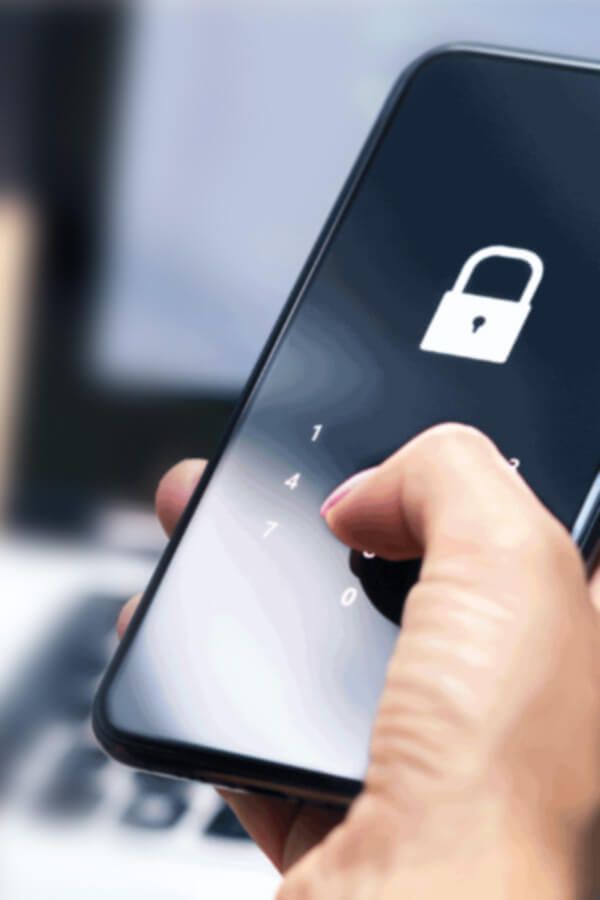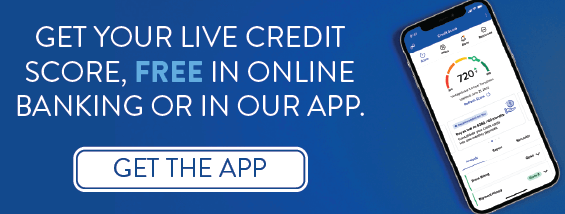
STAY SAFE BY STAYING INFORMED.

STAY SAFE BY STAYING INFORMED
A RESOURCE COMBINATION NO THIEF CAN CRACK.
FNB SCAM ALERT
FNB SECURE
MONEY SMART
Stop. Think. Connect.
ATM Safety Tips
Get Safe Online
Banking Safely On Wi-Fi
SCAM EDUCATION
Have you ever applied for a personal loan or mortgage and then soon received unsolicited offers via phone or mail from other lenders? This is an example of how trigger leads work.
Once a lender “hard pulls” your credit during the loan application process, any of the National Credit Bureaus (Transunion, Experian, Equifax), can legally sell that information to other vendors/competing lenders. This typically occurs very quickly after a credit inquiry has occurred, often within 24 hours. This type of information is bought by mortgage lenders, insurance companies, car dealers, etc.
Once other lenders see the original loan inquiry, that applicant can start getting calls, emails, and snail mail offers. There is a theory that trigger leads allow consumers to know about credit options and compare cost and terms. On the flip side, they can also open borrowers up to solicitors who may be annoying or even possibly deceptive. It is always important for a consumer to be sure of who they are actually interacting with on the phone or over digital mediums.
Please know that FNB is not sharing or selling information. With that being said, FNB also cannot prevent applicant information being sold by the credit bureaus.
Here are some ways you can advise consumers to prevent trigger leads:
Sign-up for the National Do Not Call (DNC) Registry
- DNC registry website is www.donotcall.gov and more information is available at National Do Not Call Registry FAQs | Consumer Advice (ftc.gov).
- Once a phone number is registered, it should appear on the Do Not Call list within 24 hours.
- After registering, consumers may still receive calls for up to 31 days. Any calls received after 31 days should be reported to the Federal Trade Commission (FTC).
- Please note there are some exceptions- registering does not affect:
- political calls
- calls from non-profits/charities
- calls from legitimate “survey” organizations that are not selling anything to consumers calls are still permitted from companies the consumer has done or sought to do business with
Register at OptOutPrescreen.com
- Visit OptOutPrescreen.com for more information.
- Opting out here will stop credit bureaus from selling a consumer’s name as a trigger lead.
- Opting Out online will stop trigger leads for 5 years.
- A mail-in Permanent Opt-Out Election form will stop trigger leads permanently.
DMA Choice
- Visit DMAchoice.org
- DMA is a tool developed by the Direct Marketing Association and is used to opt out of mail solicitation.
- Registration will have a small cost ($4-5).
What is it?
A fraudster intercepts and redirects Wire or Automatic Deposits from a financial institution or an organization they serve.
Who are the victims?
Victims are typically individuals within a financial, commercial, non-profit, and non-governmental entities with the ability to transfer funds or other valuable assets.
How does it work?
Fraudsters begin by conducting research on individuals using online sources of information, social media, including LinkedIn, and biographies included on a company’s website. Once individuals are identified, fraudsters will use targeted techniques such as fraudulent emails to gain access to corporate systems. The fraudster often researches organizations’ transaction processes before attacking.
Fraudsters will initiate an urgent and time-sensitive request, such as for a funds transfer. Fraudsters will take advantage of the nature of the employee wanting to give the best customer service.
The email could appear to be from a trusted vendor and instruct the receiver to make an urgent transfer to an account within the fraudster’s control (either directly or through a money mule). Fraudsters may initiate their transfer request when their target is on vacation or traveling to reduce the ability of the person receiving the fraudulent email to verify he request. Criminals are also using BEC schemes to compromise automated clearing house (ACH) transfers, gift card purchases, virtual currency payments, and even to obtain personally identifiable information for use in future scams.
Resources
FinCEN Advisory to Financial Institutions on E-Mail Compromise Fraud Schemes, FIN-2016-A003, Sept. 2016
Business E-Mail Compromise: Cyber-Enabled Financial Fraud on the Rise Globally, www.fbi.gov, Feb. 2017
Updated FinCEN Advisory on E-mail Compromise Fraud Schemes Targeting Vulnerable Business Processes, FIN-2019-A005, Jul. 2019
What is it?
A fraudster poses as a potential employer, convincing victims to process financial transactions, or forward them money or personally identifiable information.p>
Who are the victims?
Anyone can be a victim, but job seekers, college students, the underemployed, stay-at-home parents, or retirees may be more susceptible to these scams.
How does it work?
Fraudsters will post ads on fake company websites, online forums, and social networks for high paying jobs that can be done from home and conduct phony interviews with the victims.
Following the interviews, fraudsters will request money for training or personally identifiable information for background checks or other aspects of the hiring process.
Criminals may use the victim’s financial information to initiate ACH credits or perform mobile deposits to the victim’s account. They then instruct the victim to forward the funds into an account they control, less a fee that is meant as payment. In other cases, the fraudster will pretend to overpay the victim with fake checks and request that the difference be returned with a wire transfer, or open accounts in the victim’s name using personally identifiable information stolen earlier in the scam. Victims of employment scams are typically held accountable for losses and damage to their credit scores.
Resources
Job Scams, Federal Trade Commission
BBB Tip: Employment Scams, Better Business Bureau, Mar. 2017
Cyber Criminals use Fake Job Listings to Target Applicants’ Personally Identifiable Information, Internet Crime Complaint Center, Jan. 2020
What is it?
Criminals use a fake lottery win to convince victims to send funds or share personally identifiable information.
Who are the victims?
Anyone can be a victim, but the elderly and financially vulnerable may be more at risk.
How does it work?
Fraudsters contact victims through mass phishing techniques in the mail, on social media or via text message claiming they have won the lottery.
Victims are asked to forward a processing fee, or complete a form requiring exhaustive personal information, before receiving their winnings. Sometimes they even go to the lengths of calling and letting the victim know that they will be arriving with the winnings within days if they would just send them the processing fees.
When money is involved, criminals typically prefer payment through Western Union or MoneyGram, gift cards, or cash in the mail. If the victim does forward a fee, then the fraudster will make additional requests for funds — such as tax fees or administration fees. This will continue until the victim catches on or runs out of money. They may pose as domestic or international lottery officials.
Resources
Five Red Flags to Help You Spot a Lottery or Sweepstakes Scam, Better Business Bureau, Jul. 2017
Sweepstakes, Lottery and Prize Scams, Better Business Bureau, Jun. 2018
What is it?
Criminals use a fake lottery win to convince victims to send funds or share personally identifiable information.
Who are the victims?
All demographics are targeted, but seniors, women, and widows are most often victimized.
How does it work?
The fraudster will contact the victim through social media networks, online forums, or dating sites. Fraudsters will pose as old friends from online. On-line dating sites can be a prime location for the fraudsters to surf for victims. The fraudster is typically located overseas but may portray themselves as an American (Military or business professional).
This fraud may take months to develop as the fraudster builds trust with the victim. Fraudster really preys on the compassion of the victim.
At some point the fraudster will initiate and escalate requests for money, claiming they need the funds for travel expenses to see the victim, emergency medical expenses, a business opportunity, or another fictitious purpose. The fraudster may also request online login details with a plan to gain access to the victim’s accounts, or alternatively, convince the victim to transfer fraudulent funds as an unsuspecting money mule (someone who transfers or moves illegally acquired money on behalf of someone else).
Resources
Romance Scams – Online Imposters Break Hearts and Bank Accounts, Federal Bureau of Investigation, Feb. 2017
Cyber Actors use Online Dating Sites to Conduct Confidence/Romance Fraud and Recruit Money Mules, Internet Crime Complaint Center, Aug. 2019
2019 Internet Crime Report, Internet Crime Complaint Center, Feb. 2020
What is it?
A fraud targeting individuals with the promise of a loan in exchange for a fee.
Who are the victims?
Victims are often college students, underemployed, or facing a form of addiction, such as gambling or substance abuse.
How does it work?
Fraudsters contact victims through social networks such as Craigslist and Facebook, mass email or text message, and even by posting ads in newspapers and magazines.
These ads promise access to loans regardless of credit history or employment status.
Once the victim responds, the fraudster may request financial details from the victim such as account information or online/mobile login credentials. They then use this information to either initiate ACH credits or perform mobile deposits to the account with instructions for the victim to then return a portion of the funds as part of a processing fee. In another version of the scam, criminals request an urgent and upfront insurance or application fee, usually by wire transfer, then break off contact with the victim once the payment is made. Fraudsters may also pretend they are employees of a fictitious government department, claiming the victim has been selected to receive a grant contingent on an initial fee.
Resources
Advance-Fee Loans, Federal Trade Commission, Aug. 2012
Predatory Loans and Loan Scams, New York State Department of Financial Services
Fighting Fraud, United States Senate Special Committee on Aging, Mar. 2018
2018 BBB Scam Tracker Risk Report, Better Business Bureau Institute for Marketplace Trust

